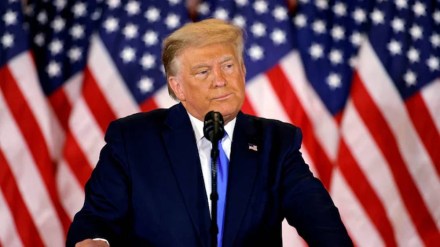White House is reportedly preparing to cut tariffs on several everyday food items, Financial Times reported. This comes as pressure builds on the administration to address the rising cost of living that began under Joe Biden and continues to pinch Americans under Donald Trump’s presidency.
Since Donald Trump returned to the Oval Office in January 2025, his administration has imposed hefty tariffs on multiple countries exporting various everyday items to the US, which has led to increased costs for American consumers.
US considers cutting tariffs on food items
Kevin Hassett, who heads the National Economic Council, suggested during an event in Washington that the administration might change tariffs on groceries to make food more affordable.
“One of the things people have been discussing over the last few days is adjusting tariffs on foodstuffs,” Hassett said. “I think there are going to be more changes.”
Hassett, who might replace Jerome Powell as the next Federal Reserve chair, added, “You do what you think is right, then you watch what happens. And when you see things that need adjustment, you adjust them.”
Coffee, Bananas, other Fruits — on the list
Earlier in the day, US Treasury Secretary Scott Bessent told Fox News that the Trump camp is planning to make “substantial announcements” regarding the food prices. When asked about the tariff relief plans for coffee-producing countries such as Vietnam and Brazil, Bessent said, “It’s tough to do a lot of specific things, but I can tell you… You’re going to see some specific announcements in the coming days in terms of things we don’t grow here in the United States — coffee, bananas, other fruits, things like that.”
Following his comments, coffee prices fell dramatically on Wednesday amid signs that the US could soon cut import tariffs on selected goods. Most bananas sold in America are imported from countries with cheaper labor and land, making tariffs a key factor in final prices.
The talk of tariff changes comes after disappointing election results for the White House. Last week’s New York City mayoral race and several state governor elections saw Republicans losing to Democrats.
Inflation slows but grocery costs still high
Although the impact of Trump’s trade policies on overall prices has been less severe than some economists predicted, tariffs have contributed to a rise in inflation this year. Hassett said inflation, now at 3%, was “moving in the right direction,” but admitted that grocery bills are still expensive.
“When President Trump left office in 2021, the average monthly grocery bill was about $400,” Hassett said. “When President Biden left office, it was around $510. Now it’s about $512. So, while the rate of increase has almost stopped, the higher base remains a challenge we take very seriously.”
According to Bessent, many Americans will receive larger tax refunds next year due to changes in tax laws. These include new deductions for car loans and an end to Social Security taxes for some seniors.
Meanwhile, several countries have shown their willingness to negotiate limited trade deals with Washington to reduce tariffs. However, the administration has maintained a minimum 10% tariff on nearly all trading partners.
